
Paladins are holy warriors, called by their patron deities to carry out their divine will on earth. These knights are charged with protecting the weak, defending the ideals of law and peace, and hunting down evil wherever it rears its ugly head, and destroying it. The paladin equips themselves with weapons of war, but their ultimate goal is peace. Paladins wield divine magic that can bolster their allies and heal wounds, and this magic can also be channeled into powerful displays of radiant energy that scours shadows from dark places.
Follow this guide to discover how to best optimize the skills, weapons, features, and abilities for a D&D 5e Paladin class character build. While the options presented here may be the optimal build for a paladin (in my opinion), the beauty of D&D character creation is that the only limit is your imagination so feel free to build your character whichever way you want to.
The guide that follows uses a color-coding system to rank the abilities granted.
Blue = An essential, class-defining ability you would be remiss to overlook.
Green = A strong choice for your class.
Orange = Average option, useful in specific circumstances
Red = Below average, extremely situational, or otherwise just bad.
All features and abilities are from the core rulebook set (Player’s Handbook, Monster Manual, and Dungeon Master’s Guide) unless otherwise attributed.
Party Role
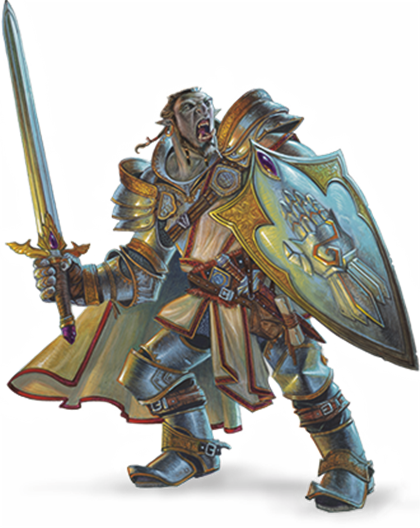
Paladins are primary melee combatants and secondary support characters. Your job as a paladin is to stand between the weak and any danger that presents itself. Your weapon proficiencies and heavy armor grant you strength and durability. Your divine magic grants you healing and abjuration to enhance your abilities.
Strengths:
- Proficiency with all weapons and armor mean Paladins are well equipped for almost any combat encounter.
- High armor class and hit points make Paladins resilient enough to tank most threats.
- Consistent damage output, and access to additional damage sources. Extra Attack, Divine Smite and proficiency with two-handed weapons means Paladins are able to dish out damage quickly, consistently, and reliably.
- Support magic allows Paladins to heal and buff.
Weaknesses:
- Reliance on weapons makes Paladins single-target fighters. Against a horde of enemies, casters are more suited to deal with the threat.
- Code of conduct. Paladins are required to be Lawful, which means you need to role play specific ideals.
- Limited skill utility. If the problem doesn’t require a strength-based solution, Paladins are basically useless. Paladins rely on other classes for Intelligence and Wisdom-based skill tests.
Check out this video by Don’t Stop Thinking which summarizes the D&D Paladin Class:
Ability Scores
Strength: As a primary melee combatant, Paladins want to have high strength. You’re going to be swinging around some pretty big weapons, so you want to make sure you hit.
Dexterity: Paladins don’t gain access to a ranged combat style. They are proficient with heavy armor. You have no reason to have a high Dexterity score, so you can safely dump it.
Constitution: Paladins are arguably the most durable and self-sufficient class in the game. By keeping your Constitution nice and high, you ensure your survivability.
Intelligence: You can safely dump this stat. There aren’t any Paladin abilities that rely on it, and the skills tied to it are unimportant for Paladins.
Wisdom: Paladins are high-Charisma characters, and benefit from social skills. A decent wisdom will give you decent Insight, which helps when you’re trying to ferret out evil hiding in plain sight.
Charisma: Your Paladin abilities are all tied to Charisma. Max it out once you’re happy with your Strength and Constitution scores, and your spellcasting and other abilities will increase.
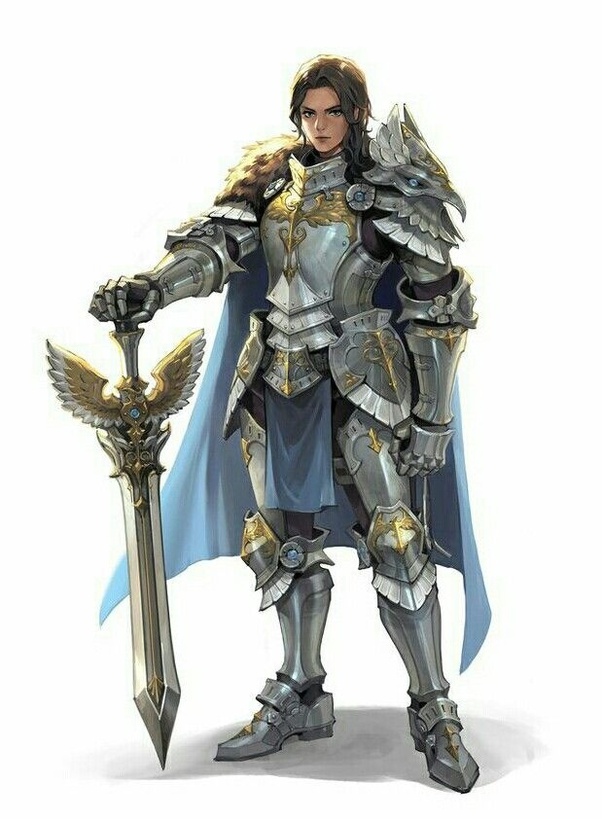
Races
Greyhawk and Forgotten Realms Races
AarakocraEEPC: Dexterity and flight make this the optimal race for a Dexterity build, which isn’t adviseable.
AasimarVGtM: Thematic and powerful
Fallen: A really flavorful option for an Oathbreaker Paladin
Protector: The bonus Wisdom doesn’t do a lot for you.
Scourge: The added durability is welcome.
BugbearVGtM: Strength and reach make you powerful.
DhampirVRGtR: The speed boost, mobility option, and natural Constitution-based attack make this a great choice for Paladin.
Dragonborn: Strength and Constitution increases, energy resistance, and a breath weapon.
Dwarf: The Constitution increase is welcome.
Hill Dwarf: Wisdom isn’t important.
Mountain Dwarf: The Strength increase is the best part of Dwarf Paladin.
DuergarSCAG: Underdark races with their sunlight sensitivity don’t really mesh with a warrior of light.
Elf: Elves are naturally lithe and dexterous, where Paladin looks for Brute Strength.
Drow: Sunlight sensitivity is a huge drawback.
EladrinMToF: Charisma, and the teleportation ability make a nice combo.
High Elf: Not useful for Paladin.
Sea ElfMToF: Not useful for Paladin.
Shadar-KaiMToF: Constitution, teleportation, and a damage resistance.
Wood Elf: Not useful for Paladin.
FairyTWBtW: Inability to fly while wearing more than light armor makes this a poor choice.
FirbolgVGtM: The Strength bonus is nice. Some innate spellcasting.
GenasiEEPC:
Air: Not useful for Paladin.
Earth: Strength and Constitution, plus some additional abilities.
Fire: Not useful for Paladin.
Water: Not useful for Paladin.
GithMToF: The Gith races aren’t terribly good Paladins.
Githyanki: Strength increase, but otherwise not useful.
Githzerai: Not useful for Paladin.
Gnome: Nothing Gnome has to offer is useful for Paladins.
Deep (Svirfneblin)EEPC/SCAG: Not useful for Paladin.
Forest: Not useful for Paladin.
Rock: Not useful for Paladin.
GoblinVGtM: A hilarious choice, your movement and Fury of the Small can be useful, but other races are generally better.
GoliathVGtM/EEPC: Good stat increases, Athletics proficiency, and Stone’s Endurance make this a great choice.
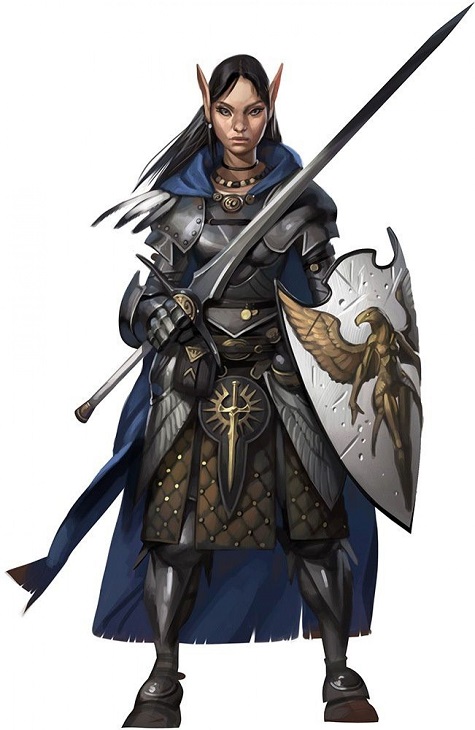
Half-Elf: The best overall choice for Paladin, and a great choice for any class at all. Charisma, and your choice of two others (but make them Strength and Constitution)
Standard: Two free skills!
AquaticSACG: Only in an aquatic campaign.
DrowSCAG: Trading the two skills for some spells isn’t a good choice.
Moon/SunSCAG: You don’t need wizard cantrips, generally. If you really want Booming Blade or Green Flame Blade, go with the feat so you at least get a 1st level spell out of it as well.
WoodSCAG: The bonus speed is nice, but otherwise the standard version is better.
Half-Orc: Good stat increases, speed, and a skill.
Halfling: The Lucky ability makes for a more reliable character, but otherwise the Dexterity increase isn’t too useful.
Lightfoot: The Charisma increase is nice, but the stealth skills aren’t useful.
GhostwiseSCAG: Not useful for Paladin.
Stout: Extra durability in a small frame.
HarengonTWBtW: The bonus to Dexterity saves compliments your defensive capabilities very well.
HexbloodVRGtR: Nothing terribly useful for Paladins.
HobgoblinVGtM: Not useful for Paladin.
Human: Humans are a very versatile race that work well in any class.
Standard: The ability score increases aren’t the most interesting thing in the world, but they do round out your ability scores well.
Variant: You can still increase your main stats, and you have an option to pick up a feat at first level.
KenkuVGtM: Not useful for Paladin.
KoboldVGtM: Pack Tactics is a useful ability, but generally this race isn’t ideal.
LizardfolkVGtM: The ability score increases don’t mesh well with Paladin, and the racial abilities are redundant with your Paladin abilities.
OrcVGtM: Half-orc is strictly better. And the Eberron variant is the better use of the Orc race.
RebornVRGtR: This is a mediocre race at best.
TabaxiVGtM: feline agility functions even in heavy armor, so this race is actually viable for Paladin.
Tiefling: +2 base Charisma is a great starting point for Paladins. Some of the subraces add even more.
Standard: The basic Tiefling grants abilities that help out, but some other variants are better.
Devil’s TongueSCAG: Better spells than the standard version.
FeralSCAG: Dexterity isn’t necessary, but this racial variant can be combined with others, meaning you’ll improve on ranged attacks, and gain other abilities.
HellfireSCAG: Hellish rebuke is something you don’t want to miss out on.
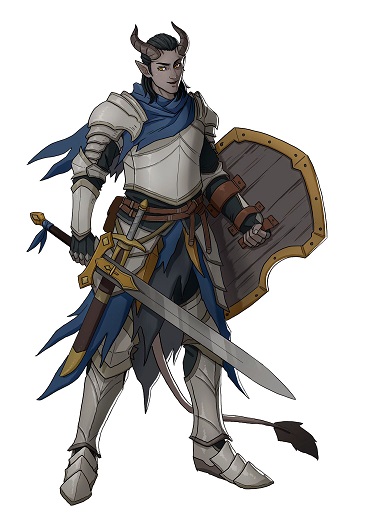
WingedSCAG: Flight is an amazing advantage.
AsmodeusMToF: The spells are good, but you really want Strength or Constitution increases.
BaalzebulMToF: Not useful for Paladin.
DispaterMToF: Useful if you’re an inquisitor.
FiernaMToF: Not useful for Paladin.
GlasyaMToF: Not useful for Paladin.
LevistusMToF: The spells are very useful, but this subrace causes you to miss out on key ability score buffs.
MammonMToF: Not useful for Paladin.
MephistophlesMToF: Not useful for Paladin.
ZarielMToF: Good ability score increases, spells, and extra smites.
TortleXGE/TP: A perfect race, but you’re going to want to wear full plate at your top levels.
TritonVGtM:Perfect ability score spread, spellcasting, and resistance.
Yuan-Ti PurebloodVGtM: Magic resistance and poison immunity.
Eberron Races
ChangelingERLW: Charisma, and a flexible increase that you can put into Strength. Two skills, and disguise.
KalashtarERLW: Not useful for Paladin.
OrcERLW: Half-Orc is still better, but this version is much better than the other Orc.

ShifterERLW: Darkvision is always welcome, and because Paladins don’t have many uses for bonus actions, the Shifting trait is more easily used.
Beasthide: Strength and Constitution, and a free skill. The temporary hit points you gain while shifting are a great perk as well.
Longtooth: A less favorable ability score increase, but the extra attack granted by your shifting more than makes up for it.
Swiftstride: Not useful for Paladin.
Wildhunt: Not useful for Paladin.
WarforgedERLW: Everything about Warforged screams Paladin. Strength, a flexible ability score increase, natural armor, AC bonus, and the vigilance to keep watch over a sleeping party.
Strixhaven Races
OwlinSACoC: Flight, but at the cost of your use of heavy armor.
Ravnica Races
CentaurGGTR: Not a lot for Paladins in general, but the speed and charge attack make for a powerful build.
LoxodonGGTR: Poor ability score spread.
MinotaurGGTR: Another powerful monstrous race.
Simic HybridGGTR: This race is stellar for any class. Totally flexible, and lots of great options.
VedalkenGGTR: Not useful for Paladin.
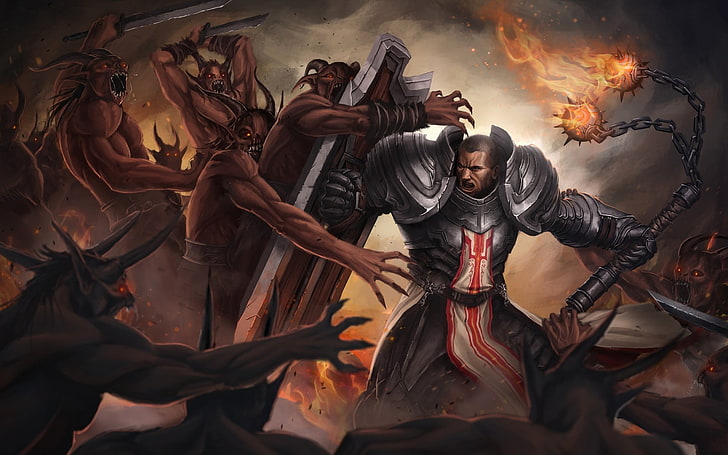
Class Features
Hit Dice: d10 hit points put you at the top of the hit point game.
Weapon Proficiencies: All weapons. The best kind.
Armor Proficiencies: All armor and shields.
Tool Proficiencies: None.
Saving Throws: Between your starting selection and Aura of Protection, you’re going to be boosting all your saves quite well.
Divine Sense: The ability to find the types of creatures you’re most likely on a mission to destroy.
Lay On Hands: This is the most efficient healing ability in the game. If you’ve got a good Charisma score, it’s a deep pool of hit points. You can choose exactly how many hit points you restore each time you use it, so it’s a heal and a stabilization/revive all in one.
Fighting Style: Paladins get a smaller list of fighting styles than Fighters do, but there are still solid options on the list.
Defense: Not the most exciting option, but +1 can be a big difference.
Dueling: The bonus 2 damage while using a 1-handed weapon closes the damage gap between a longsword and a two-handed weapon, making this the best style for a “sword-and-board” style Paladin.
Great Weapon Fighting: This option adds 1 damage on average per attack, which isn’t spectacular once you understand the math. The reroll does not apply to Smite damage dice, making it less useful. If you plan on using two-handed weapons, pick Defense instead to compensate for your lack of a shield.
Protection: Tempting, but it only works with adjacent allies. If you’re adjacent to the front-liner, you’d better be a front liner yourself. The best use of this choice is if you’re going to be mounted frequently, as it allows you to protect your mount.
Spellcasting: Paladin spellcasting is a nice mix of defensive buffs and healing. Your Smite spells are unique to your class, and powerful options for your swordsmanship. Burning spell slots on your Divine Smite is also a great use of spells.
Divine Smite: Using this ability will increase your weapon damage, but you’ll burn through your limited spell slots quickly. Using the Smite spells, such as Searing Smite, Thunderous Smite, and Wrathful Smite can do decent damage with helpful additional effects which may be more situationally useful than the small amount of extra damage that Divine Smite provides. The appeal of Divine Smite over the smite spells is that you can choose to use the extra damage after you’ve rolled a hit, specifically after rolling a critical hit, guaranteeing that you’ll double the additional damage dice and get considerably more out of your spell slot than you might otherwise.
Divine Health: You can cure disease with your Lay on Hands ability, so this isn’t crucial.
Extra Attack: A second attack doubles your damage output.
Aura of Protection: Not being proficient in your saves is ok as long as you’ve got a decent Charisma.
Aura of Courage: It’s nice to know your allies won’t abandon you at the sight of danger.
Improved Divine Smite: You don’t get as many attacks as fighters, but with this you’ll be able to keep up damage-wise.
Cleansing Touch: A great way to un-curse your allies without using a spell slot.
Sacred Oaths
Oath of ConquestXGtE
This discipline is very powerful. The spell list isn’t stellar, but Paladins can always convert them into Divine Smites, so it doesn’t matter. The abilities granted are a mix of crowd control options and strong offensive options.
Oath Spells: Most of the spells on this list require a save by the target, so upping your Charisma is mandatory if you plan on using them to their best effect.
3rd-Level: Armor of Agathys is great at low levels when the damage it deals can kill minor enemies, or at least chip away at them enough for your melee weapon attacks to one-shot them. Command isn’t going to be much use to you unless your DC is high enough.
5th-Level: Spiritual Weapon is an awesome way for you to spend your bonus action and helps you to deal with multiple foes. Hold Person will be unreliable unless you have a really strong Charisma.
9th-Level: both of these options require a save by the creatures affected, so high Charisma is mandatory for them to have any meaningful impact. This might be the level reserved for smites.
13th-Level: Stoneskin is a great spell for you, but the material component is expensive. You’re also coming up to a level where a lot of things deal magical damage, so it might diminish in usefulness. Dominate beast suffers from the same DC dependence as the previous.
17th-Level: Two more powerful spells that suffer from your likely relatively poor spell DC.
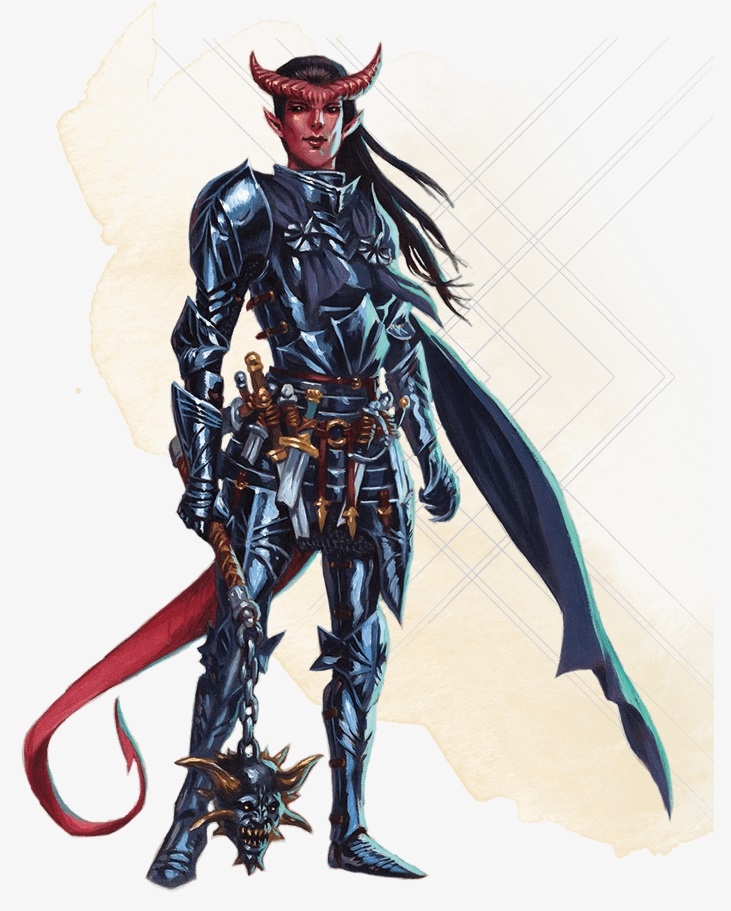
Channel Divinity: Both options are excellent.
Conquering Presence: An AoE debuff that really shines when you gain your Aura of Conquest.
Guided Strike: This is a really great ability that ensures you hit with an attack, which means you get to smite.
Aura of Conquest: You have two ways to cause fear, your channel divinity and the fear spell, both of which require a save DC. If you needed a reason to increase your Charisma, this is it. The ability to lock down terrified enemies can end an encounter or prevent a squad of minions from moving.
Scornful Rebuke: Cast Compel Duel on an enemy, and then watch them kill themselves. If you’re a great-weapon Paladin not using a shield, having a lower AC is actually better for you. More hits coming in means more damage going out.
Invincible Conqueror: For 1 minute per day you become an absolute wrecking ball. This is akin to the Barbarian’s rage, without the requirements to keep it active.
Oath of Devotion
This is the most typical version of a Paladin. If you’re coming into the game from a previous edition or video games, you’ll find this choice rather comforting. It provides a mix of abilities that are intuitive and have a good degree of synergy.
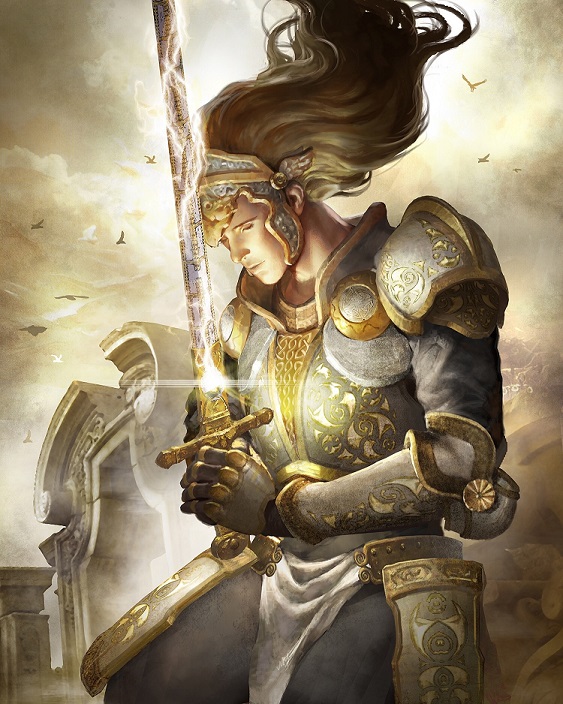
Oath Spells: The standard Paladin spell list isn’t spectacular. Without access to spells from other classes or Xanathar’s Guide to Everything, you’re just given spell slots to convert into Divine Smite.
3rd-Level: Sanctuary is very situational. Protection from Evil and Good is a very strong buff, especially when used to prevent or control possession and charm effects at low levels, when your party is particularly susceptible to them.
5th-Level: Both spells are situational, and not terribly useful unless you specifically need them.
9th-Level: Beacon of Hope is just bad for Paladins to use. Your auras help on saves, and you don’t have good enough healing spells for it to be effective.
13th-Level: Freedom of Movement is situational, but when you need it you really need it. Guardian of Faith is a very strong area control spell.
17th-Level: Flame Strike is one of, if not the best divine AoE spells. Commune is tricky to use well.
Channel Divinity: Two useful options that feel very…paladin-y.
Sacred Weapon: Granting yourself a magic weapon for a minute is very useful at low levels, but chances are any magic weapons you find over time will outclass this eventually.
Turn the Unholy: Adding turning undead and fiends to your list of abilities is useful for dealing with crowds of monsters.
Aura of Devotion: A situational ability, but Charm is a dangerous status effect, and one you’d like to avoid.
Purity of Spirit: Protection from Evil and Good is an amazing defensive buff, and having it permanently running without needing to concentrate is spectacular.
Holy Nimbus: 10 damage isn’t a lot at this level, but 10 damage per round when you’re squaring off against a big bad is going to stack up quickly. This also keeps pesky minions off your back, allowing you to save your weapon attacks for the main villain.
Oath of RedemptionXGtE
The Redemption Paladin focuses on de-escalation of violence. Unlike the other Sacred Oaths, this one grants abilities that can most easily be used to prevent or end encounters and promote diplomatic avenues. This sacred oath requires you to max out your Charisma as soon as possible, in order to make the best use of your Charisma-based skills and spellcasting, all of which relies on your targets failing the spell save DC. If you choose this sacred oath, you’ll want to use heavy armor and a shield, and choose the defensive fighting style to keep yourself alive long enough to end the encounter using nonviolent means.
Oath Spells: Your spells are all excellent and on theme. They require saves, so make sure you’ve got a good high DC.
3rd-Level: A personal protection spell, and a mass de-escalation spell.
5th-Level: Hold person restricts you to a specific creature type. Calm emotions is a strong area of effect spell, but only works situationally.
9th-Level: Counterspell is the best spell because it beats any spell…provided that spell is of equal or lower level. You’re a partial caster, so this has limited use, but it’s a reaction and you don’t have a lot to do with your reaction aside from opportunity attacks, which are generally wasted on ranged casters, so QED. And Hypnotic pattern is another spell you will learn so that’s fun.
13th-Level: Both spells at this level are powerful both offensively and defensively. They give you great resilience.
17th-Level: Hold monster is the catch-all paralysis spell you’ve been waiting so patiently for. Wall of force is the best wall spell in the game.
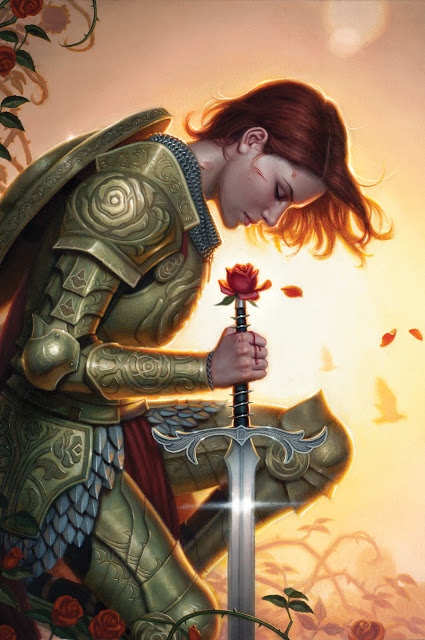
Channel Divinity: Both options are easy to use and commonly activated.
Emissary of Peace: +5 to persuasion turns your charm all the way up, allowing you to get much farther on pretense without using magic.
Rebuke the Violent: Great to use against enemy casters, or big monsters who hit hard. Did they just hurt you? Make them feel your pain.
Aura of the Guardian: Being able to soak up damage lets you tank at short range. In case one of your squishier party members accidentally gets hurt, you can soak it for them.
Protective Spirit: This makes Aura of the Guardian safer to use and helps keep you alive.
Emissary of Redemption: By being a punching bag, you can take no actions and kill something.
Oath of the Ancients
Ah, the Nature Paladin. Oath of the Ancients shares a lot of abilities with both Rangers and Druids. It includes abilities that restrain and hinder movement of enemies, which gives you a great degree of battlefield control.
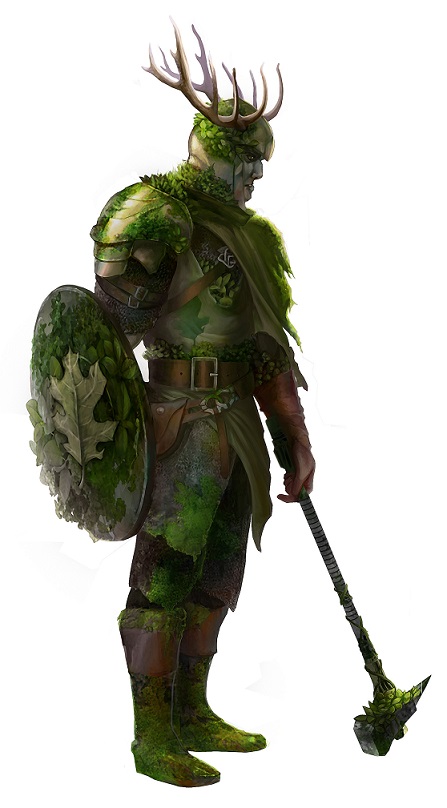
Oath Spells: The Nature Paladin’s Oath Spells aren’t the best, but Paladins don’t suffer from poor spell selection given their ability to channel spell slots into divine smite.
3rd-Level: Speak With Animals is extremely situational, but Ensnaring Strike is a very strong option to add to your attacks, locking up an enemy.
5th-Level: Moonbeam is tempting but costing your action to move means you really need to have an enemy pinned down already if you’re going to use it. Misty Step is a great spell that solves a lot of mobility problems including pits, difficult terrain, walls, and enemies.
9th-Level: Plant Growth is situational. Protection From Energy is a mandatory spell for any adventurer going after dragons, elementals, or any higher level caster.
13th-Level: Ice Storm is a solid AOE that gives you additional battlefield control. Stone Skin is a good buff, but it has an expensive material component. Given that you learn it at 13th-level, many enemies you encounter will have magic attacks.
17th-Level: Commune With Nature is a somewhat useful divination. Tree Stride is extremely situational and completely useless if you’re not in a forest.
Channel Divinity: Two options that give you decent battlefield control.
Nature’s Wrath: You basically get a weaker Ensnaring Strike.
Turn the Faithless: Fey aren’t as common as Undead, but this is still useful when they turn up.
Aura of Warding: Resistance to spell damage turns you into a safe haven from enemy spellcasters.
Undying Sentinel: Hopefully you won’t need to use this, but if you do it will be nice to have.
Elder Champion: One minute per day is only ten rounds, but it’s a powerful buff while you have it operational.
Oath of the CrownSCAG
This Oath is a very strong defensive and protector build. You are provided with several abilities to single out foes and taunt them into attacking you over your weaker, more vulnerable allies. Additionally, you are afforded ways to take damage that would otherwise be dealt to your friends and use your large pool of hit points and healing options to soak up damage instead. This gives your healer a more efficient turn, where they only have to heal you with a single spell, rather than taking multiple turns to spread it around.
Oath Spells: Crown spells are a mix of useful and useless spells. Some of these spells are going to be used constantly, others are going to be converted into smites.
3rd-Level: Compelled Duel pairs well with Champion Challenge, giving you a single target taunt as opposed to the AoE your Channel Divinity gives you. Command is somewhat less useful.
5th-Level: Both of these spells are defensive and passive, making them overall weaker than many other options you have access to off the basic Paladin spell list. Warding Bond is a great way to ensure a squishy character stays alive, shunting damage they would take to you instead. Zone of Truth is very situational.
9th-Level: Aura of Vitality is an efficient use of a spell slot used for healing but requiring concentration AND a bonus action puts it at risk of being underused. Spirit Guardians a strong effect, but useless on ranged foes unless you spend your time chasing them around.
13th-Level: Banishment is situational but when it hits, it can be an encounter-ending effect. Guardian of Faith is one of the best area control options available to you.
17th-Level: Circle of Power is a powerful buff, especially with your Aura of Protection boosting your saves. Geas is usually less useful than killing something outright, but plays into your good-alignment sensibilities, and grants you some depth and could ultimately add a fun twist to the plot.
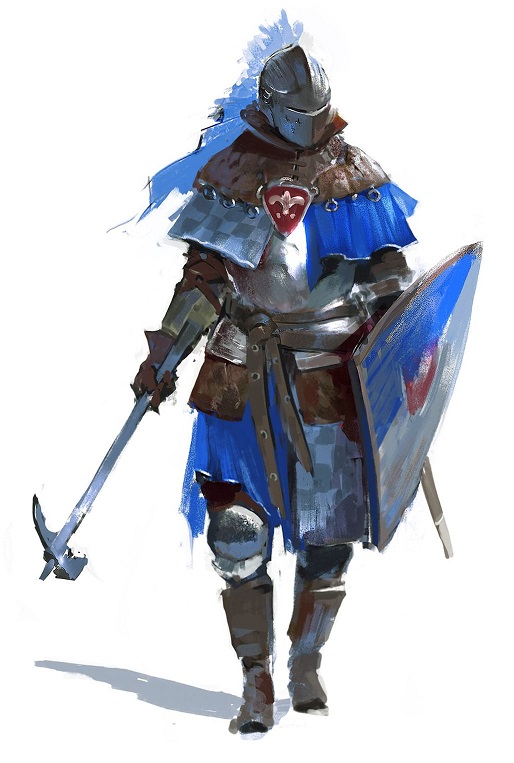
Channel Divinity: Two solid options you’ll use interchangeably.
Champion Challenge: Taunt effects are rare in 5e, and this one hits a wide area. The best part about it is that once they fail the save, there’s no retry like most other enchantment spells. There’s also no duration on this, so a contest of this sort can last for quite a while.
Turn the Tide: A small amount of AoE healing is great in combination with your Lay on Hands ability, giving you even more utility as a support character.
Divine Allegiance: Another way to redirect damage to yourself, giving your healing a single target.
Unyielding Spirit: Between this and Aura of Protection, you’re well positioned to never fail a saving throw.
Exalted Champion: Unlike most other Paladin Oath capstone abilities, this one lasts for 1 hour instead of 1 minute. While less overtly powerful offensively, you gain a great defensive buff that extends to your allies, keeping everyone in it until the end, while making your whole team exceptionally difficult to kill.
Oath of GloryTCoE
The Paladin Oath of Glory is perfect for a Hoplite, or Arena combatant. It provides you all the skillsof a great athlete and allows you to excel in combat. This Oath emphasizes your physical attributes while downplaying your spellcasting and diplomatic skills.
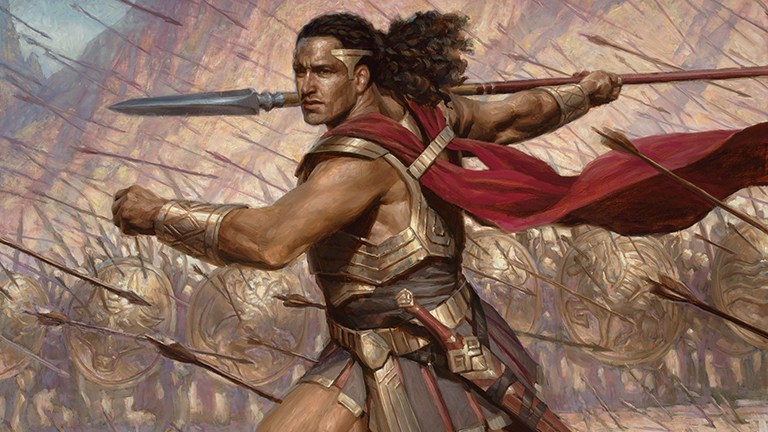
Oath Spells: Almost all your class spells require concentration, which is tough to maintain if you aren’t mainstatting Constitution, which is possibly, but also you’ll likely be on the front line. You’re better off using your spell slots for smites.
3rd-level: Guiding bolt is great if you have a bonus action attack, but otherwise, your Charisma isn’t your priority, and it requires concentration to hold out for an ally to use it.
5th-level: Enhance Ability is perfect for what this class is trying to accomplish.
9th-level: Two really great buffs that both require concentration.
13th-level: Freedom of movement is the only one worth using, but it’s very situational.
17th-level: The spells at this level are both too little too late.
Channel Divinity: It’s a shame you don’t have more uses of this ability, because both are really great.
Peerless Athlete: Activating this as a bonus action is a huge asset, you can pop it before trying to make a shove against an enemy.
Inspiring Smite: Healing on demand for yourself and others.
Aura of Alacrity: This is meant to boost your team, but the range is low, and more speed means you’re moving apart. This does affect your mount, and that’s the best use for it. The radius increase at 18th level is nice, but again, too little too late.
Glorious Defense: This is a really solid defensive ability. Use a reach weapon, profit.
Living Legend: You’re incredibly effective while this is one. The fact that it only lasts for one minute means you need to use it wisely.
Oath of Vengeance
This Paladin build is the most offensive, attack-focused style of play, and will maximize the damage you deal while leaving healing and support primarily to the Cleric. It does well in tandem with another melee character to grans flanking bonuses, or a battlefield control caster to funnel enemies towards the pointy end.
Oath Spells: Most of the spells are amazing, but most of them require Concentration, which is tough to manage when you’re wading into the middle of combat and risk losing it.
3rd-Level: Bane is a standard debuff that will significantly reduce the difficulty of any fight and is especially useful when facing down multiple enemies. Hunter’s Mark is a nice damage boost against single targets, granting you the edge on damage when you’re still low level and suffering from only having a single attack per round.
5th-Level: With a low spell DC, Hold Person is risky and unreliable. Misty Step is much more useful, allowing you to teleport into or out of the battlefield, and make sure you’re exactly where you’re needed most.
9th-Level: Haste and Protection From Energy are two of the best and most important buffs in the game.
13th-Level: Banishment is encounter-ending but relies on the save DC. Dimension Door is just a longer- range Misty Step.
17th-Level: Hold Monster is a strictly better Hold Person. Scrying is situational.
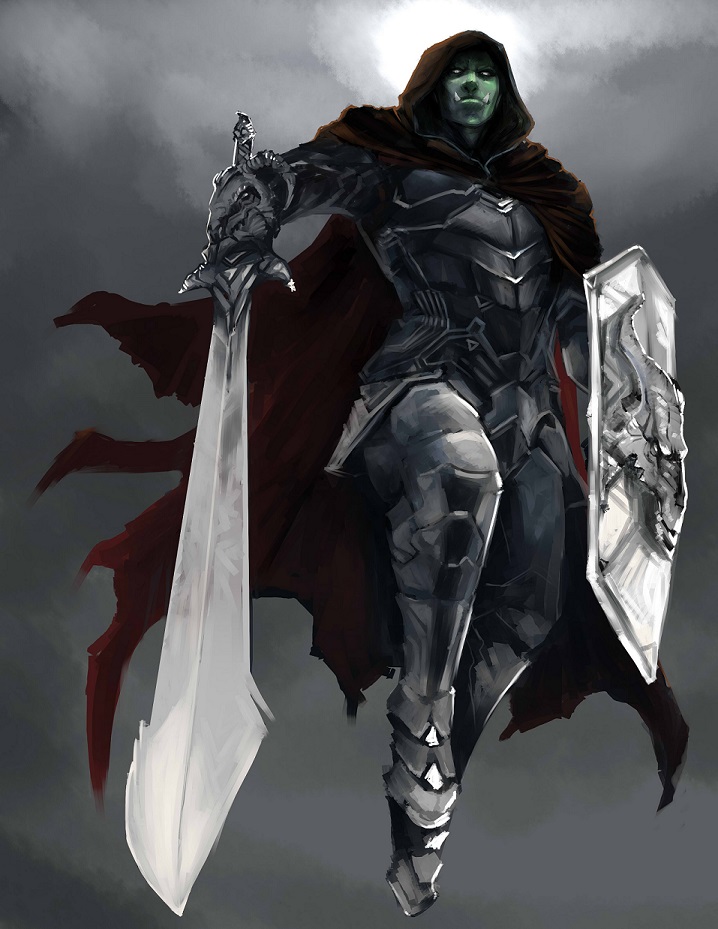
Channel Divinity: One bad option and one perfect option make your choice on which to use easy.
Abjure Enemy: Why you’d want one enemy to run away from you as a melee character is beyond me. This is the bad option.
Vow of Enmity: Here we go! Starting a boss fight? You have advantage against him. Period. Pick up some Rogue levels to get Sneak Attack and you’re set for life!
Relentless Avenger: Slower enemies will have a hard time getting away from you. Consider taking Polearm Master to further increase your threat radius and keep chasing them down.
Soul of Vengeance: An extra attack each round against your target of Vow of Enmity greatly increases your damage output.
Avenging Angel: Flight for an hour a day is pretty rad. The fear aura will hold lesser foes at bay while you take on the big bad, preventing you from being swarmed.
Oath of the WatchersTCoE
This subclass is the definition of situational. All the abilities are great, but only apply in certain situations. If your campaign setting calls for it, this is one of the strongest paladin subclasses. However, in a vacuum when compared to the others, it underperforms. If your campaign deals with extraplanar creatures, you’re going to have a lot of interaction with this subclass.

Oath Spells: A wide variety of spells that are mostly situational or overlap with other party roles.
3rd-level: Both of these spells are great but will really shine if you take the feat to be able to cast them as rituals.
5th-level: See invisibility is mandatory for any adventuring party. Moonbeam is quite situational, and a waste of your action once you’ve got an extra attack.
9th-level: Counterspell is fantastic and having it on a fighter without other reactions to speak of keeps the casters free to use other reaction spells, like shield or absorb elements.
13th-level: The buff is situational, and banishment isn’t great when you aren’t prioritizing your spell save.
17th-level: Another selection of situational and not good since you don’t have the spell save to back it up.
Channel Divinity: Bother options are middling in the realm of Paladin Channel Divinity abilities.
Watcher’s Will: If only you could pop this as a reaction, it would be really great. Ahead of a fight with casters, this is a solid buff, but otherwise it wastes an action you would otherwise use smiting.
Abjure the Extraplanar: Situational.
Aura of the Sentinel: An initiative boost for entering combat in tight formation.
Vigilant Rebuke: Situational. Good against some casters.
Mortal Bulwark: Truesight is amazing, but if you aren’t facing any of the indicated creature types you get nothing.
OathbreakerDMG
To play a Paladin not of the Good alignment means to be an Oathbreaker. This Sacred Oath is more important for villainous archetypes than the others and gives an evil-aligned campaign a solid tank option. Oathbreaker paladins are free to pursue dark goals, or accompany some more roguish characters, such as a party of warlocks, bards, and rogues, on adventures.
Oath Spells: Some of the options are bad and will never be used, but there are a few gems on this list.
3rd-Level: Hellish Rebuke is fantastic for a character that frequently wades into combat and gives you a great use for your reaction. You’ll frequently want to use it to finish off a weakened foe when fighting multiple opponents, so you have the chance to focus on the bigger threats. Inflict Wounds can’t compete with a weapon attack + divine smite.
5th-Level: Crown of Madness is a weak spell if you don’t have a very high spell save, and risks wasting your action. Darkness isn’t ideal, as you can’t see in it and aren’t exactly a stealthy character who can make good use of it.
9th-Level: Animate Dead is a great back-pocket spell that can turn the tide of a fight. Go from being outnumbered to an overwhelming force in the blink of an eye. As long as you have the materials prepared ahead of time, your reinforcements can arrive when you most need them. Not requiring concentration is this spell’s best feature. Use it to animate a dead body to kill enemies and animate them tomorrow for a never-ending cycle.
13th-Level: Blight is solid single-target damage and works better against plant foes. Confusion is unreliable compared to other single-target enchantment spells like Hold Person, given the randomness of its effect.
17th-Level: Contagion is a very powerful, out-of-combad spell you can cast. Touch a target in a crowd and watch them deteriorate before confronting them for the kill. Dominate Person is a powerful way to temporarily gain an extra party member. It’s strictly better than Crown of Madness and can turn the tide of a fight.
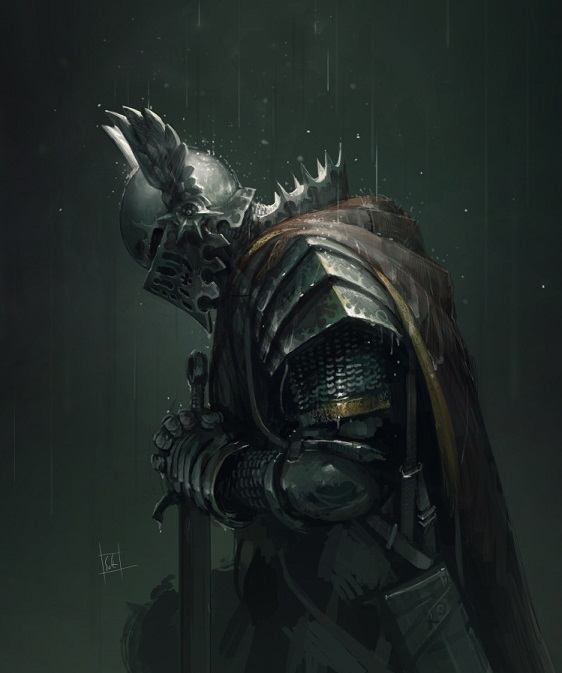
Channel Divinity: You’re going to be using Dreadful Aspect more often than not. Control Undead is on theme, but less relevant.
Control Undead: Rather than turning undead, you can redirect them. This only works on minor threats, however, as any serious undead threat is going to be too powerful for you to control. At least it’s thematic.
Dreadful Aspect: You’ll be using this every chance you get when facing down multiple foes. Putting a swath of creatures into a frightened panic in your presence allows your allies to mop them up relatively easily.
Aura of Hate: Once you get this, you’ll want to make sure you have a fiend familiar (take Arcane Initiate to gain the find familiar spell and beg your DM for a quasit or an imp) and an undead from animate dead at all times. The damage bonus will stack considerably.
Supernatural Resistance: Resistance to nonmagical damage makes you very difficult to kill when facing down minor enemies.
Dread Lord: This ability does a ton of damage. Using it in conjunction with your channel divinity will allow you to chase enemies down and cause psychic damage to them, get an extra attack, and also take your normal attack.
Skills
Acrobatics: As a Strength-based class wearing heavy armor, Dexterity skills aren’t your forte.
Animal Handling: Nature paladins and those who engage in mounted combat should grab this skill when available.
Arcana: Divine casters usually take Religion over Arcana.
Athletics: Strength is one of your main stats.
Deception: Paladins are straight-talking Lawful Good guys, but they do have Charisma as a main stat…
History: Not terribly important
Insight: The one Wisdom skill you should concern yourself with.
Intimidation: Another great Charisma skill for you.
Investigation: Not your strong suit.
Medicine: Definitely a good skill to have in the absence of a cleric and/or if you have proficiency with the herbalism/healers kit.
Nature: Only if you’re a nature paladin.
Perception: Spot enemies sneaking up on you.
Performance: Not your job.
Persuasion: This is your most important skill. Sweet talk your way out of or into anywhere.
Religion: Definitely something you should have, but not something you’ll use often.
Sleight of Hand: You don’t generally do well with Dexterity-based skills.
Stealth: Not another Dexterity skill…
Survival: Nature paladins only.
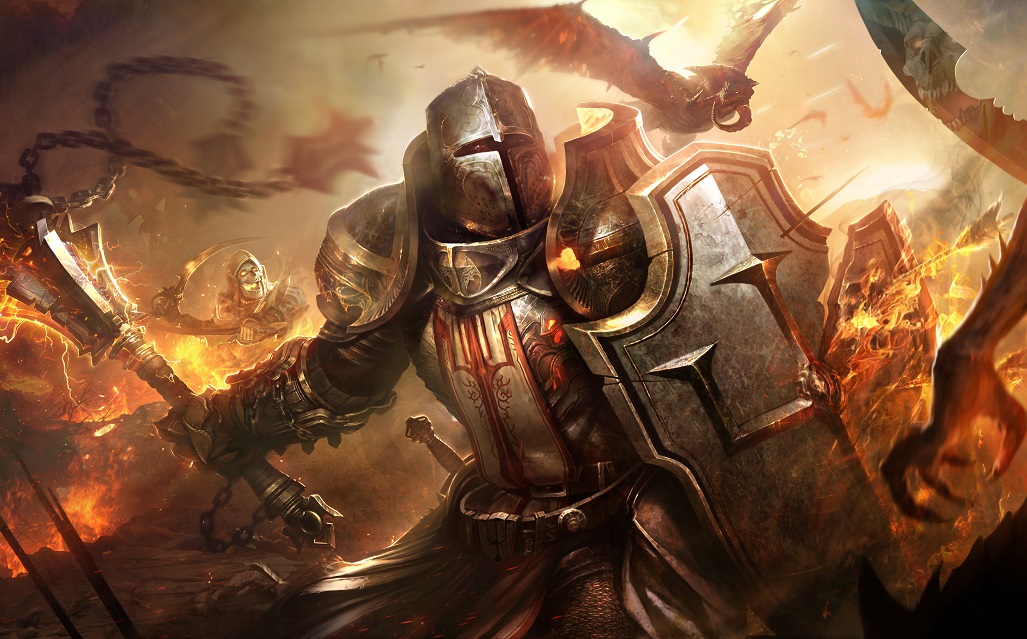
Backgrounds
Acolyte: Thematically this might make sense, as you get two skills off the paladin skill list, but neither are very useful given your ability score priorities.
Charlatan: Unless you’re an evil paladin this is contrary to your style.
City WatchSCAG: Athletics and Insight are both great skills for you to have, and extra languages are nice.
Clan CrafterSCAG: History isn’t terribly important for you, and Insight doesn’t use your main stats.
Cloistered ScholarSCAG: History, and your choice of another knowledge skill. Versatile, but not ideal.
CourtierSCAG: Two solid skills and a language.
Criminal: Paladins aren’t evil. Criminals are evil. Theme and skills don’t mix.
Entertainer: bad skills for a heavily armored tank.
Faction AgentSCAG: A fantastic choice, given the versatility in skill selection, and two bonus languages along with 15 GP, which happens to be the most of any background.
Far TravelerSCAG: Insight and Perception, two wisdom skills, are important to have but not ideal for Paladins. Though they do make you more balanced.
FeylostTWBtW: Nothing useful for Paladin.
FisherGoS: Neither skill provided by this background is terribly relevant for Paladins.
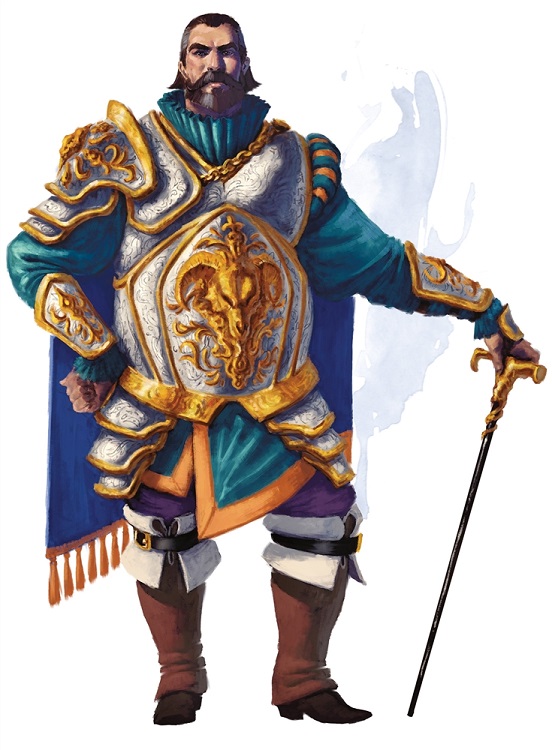
Folk Hero: An Oath of the Ancients Paladin might find this flavorful, though not functional.
Guild Artisan: Insight and Persuasion are good skills for a paladin to have, but the tool isn’t relevant.
Haunted OneVRGtR: If you’re trying to be a cop, the skills are here for you. However, there are better backgrounds for that particular archetype.
Hermit: Medicine and Religion are your two most useful class skills. You’ll use the herbalism kit for healing occasionally, so this is a great choice.
InheritorSCAG: Good for an Oath of the Ancients Paladin.
InvestigatorVRGtR: Skills and tools that aid in your pursuit of justice.
Knight of the OrderSCAG: A good selection of skills, a game or an instrument, and 10 GP. Plus, it’s very on theme if you’re playing a knight.
Lorehold StudentSACoC: Relevant skills, and good spells.
MarineGoS: In a sea-faring campaign, this is the perfect background. Athletics is important at sea, and Survival will come into play if you’re shipwrecked. Vehicle proficiency helps you contribute to the crew.
Mercenary VeteranSCAG: Another perfectly on-theme background for the jaded veteran. Two great skills off your list, vehicle proficiency, and a feature that helps advance the plot if your DM is clever about it.
Noble: History is less useful than religion for you specifically, but persuasion is your main skill.
Prismari StudentSACoC: Good cantrips, and some really good spells you don’t normally get.
Quandrix StudentSACoC: Not a lot of synergy with Paladin.
Outlander: Athletics is a good skill to have, but that’s all this background offers.
Sage: Not relevant for a Paladin.
Sailor: Athletics and Perception is a solid combination. Proficiencies with water vehicles and free passage to new places opens up avenues of exploration.
ShipwrightGoS: The vehicle proficiency is the only things of value from this background.
Silverquill StudentSACoC: Very useful spells, mediocre skills.
SmugglerGoS: Evil and antihero Paladins look no further! Deception and Athletics are two great skills for your archetype.
Soldier: Athletics and Intimidation are both in your wheelhouse, and land vehicle proficiency will help on your travels.
Urban Bounty HunterSCAG: Not relevant for a Paladin.
Urchin: Not relevant for a Paladin.
Uthgardt Tribe MemberSCAG: Useful for an Oath of the Ancients Paladin looking for Survival.
Waterdhavian NobleSCAG: Thematic, but not useful.
Witchlight HandTWBtW: Nothing useful for Paladin.
Witherbloom StudentSACoC: Spare the dying, and some other spells you may be interested in. You can use your single-cast 1st level spell for a smite.
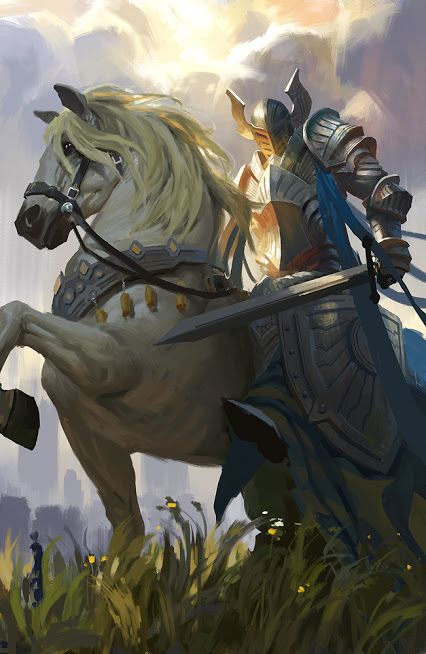
Feats
Alert: You only need to go first to get good positioning, but it isn’t the most important thing for you.
Athlete: Not useful for Paladin.
Actor: Not useful for Paladin.
Charger: Charge attack usually only comes into play once per combat and isn’t always an option.
Crossbow Expert: Not useful for Paladin.
Defensive Duelist: Paladins already have quite a few reaction options, but if you are a Sacred Oath that doesn’t have one, and you use a finesse weapon for some reason, this is an option for you. However, there are still better feat options available for you.
Dual Wielder: Unfortunately, two-weapon fighting isn’t a combat style available to you, or this would be agreat way to increase your AC.
Dungeon Delver: Not useful for Paladin.
Durable: Unless you’re playing a Solo adventure, this isn’t important for you given your multiple healing abilities.
Elemental Adept: Not useful for Paladin.
Grappler: This might be useful if you have high athletics skill, and want to try to wrestle, but you’re going to be better off using weapon attacks for your smites.

Great Weapon Master: If you’re using the Great Weapon Fighting combat style, this feat is a great boon. You’ll dish out heaps of damage, just make sure you do all you can to increase your attack roll bonuses and get advantage on your attacks.
Healer: You’ve already got plenty of healing options, but if you’re the primary support character, this is useful in absence of a cleric/druid.
Heavily Armored: Redundant.
Heavy Armor Master: A solid feat, especially at low levels. You’ll gain access to several abilities that grant resistance depending on your sacred oath, so make sure this won’t become redundant at higher levels.
Inspiring Leader: Using this during every short rest will send the party into your next encounter with a decent reserve of temporary hit points. If you’re taking the time to maximize your Charisma, this is especially effective.
Keen Mind: Not useful for Paladin.
Lightly Armored: Irrelevant.
Linguist: Take the time to get tongues on an item or lean on other party members.
Lucky: An all-around great feat for any class.
Mage Slayer: Casters are typically squishy enough for you to take them out with damage without needing too much help.
Magic Initiate: Useful if you want to grab Booming Blade/Green Flame Blade.
Martial Adept: This feat is really only good for Fighters.
Medium Armor Master: You should be using heavy armor.
Mobile: Paladins don’t run from a fight.
Moderately Armored: Irrelevant.
Mounted Combat: This feat is mediocre as written, but if your DM allows you to get creative with it, and what mount you have, you can really shine as a cavalier.
Observant: Not useful for Paladin.
Polearm Master: Gaining the extra abilities with reach weapons is amazing for Paladins. All your abilities, smites specifically, can be used in a greater area around you.
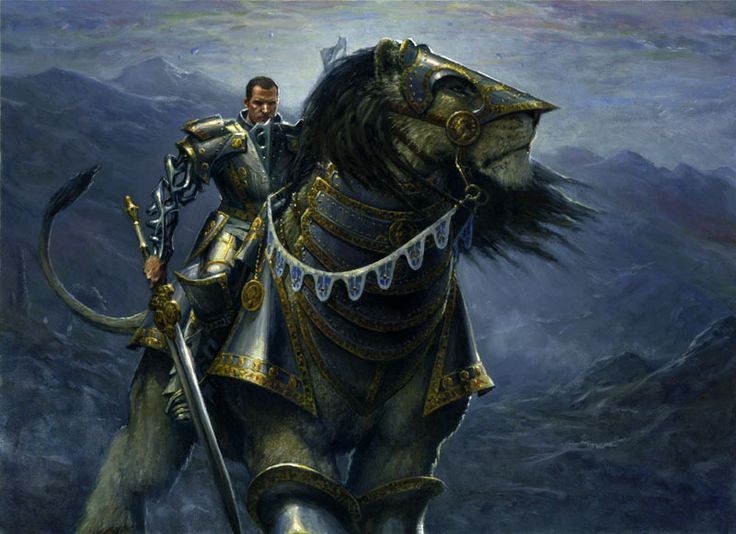
Resilient: You’ll get a boost to all your saves eventually, so this feat gets outclassed at higher levels.
Ritual Caster: Not useful for Paladin.
Savage Attacker: This feat isn’t good. The math is not favorable. You should just take Lucky instead.
Sentinel: An excellent combination with Polearm Master. Keep in mind that this has some overlap with the Protection combat style.
Sharpshooter: Not useful for Paladin.
Shield Master: If you’re a dueling combat style paladin fighting with a shield, this feat is incredible. You can push people around as a bonus action, you get a situational boost to Dexterity saves, and gain Evasion as a reaction.
Skilled: You don’t need a ton of skills, so make sure you’re covered by your background and class selections.
Skulker: Not useful for Paladin.
Spell Sniper: Not useful for Paladin.
Strixhaven InitiateSACoC: Magic Initiate is a better choice.
Strixhaven MascotSACoC: A combat feat would probably serve you better.
Tavern Brawler: Not the most efficient use of a feat, but if you really want it, make sure your Strength and Athletics are high.
Tough: You’ve already got a ton of healing options, but again, for lack of a Druid/Cleric in the party this may be important to ensure you stay alive to provide the support your allies need.
War Caster: This helps you hold concentration on your buff spells, but again, isn’t the most efficient use of a feat.
Weapon Master: Irrelevant.
Weapons and Armor
First thing’s first, heavy armor, all the way. You can go with a Dexterity build, but since the Archery fighting style isn’t available to you, there’s hardly a reason to.
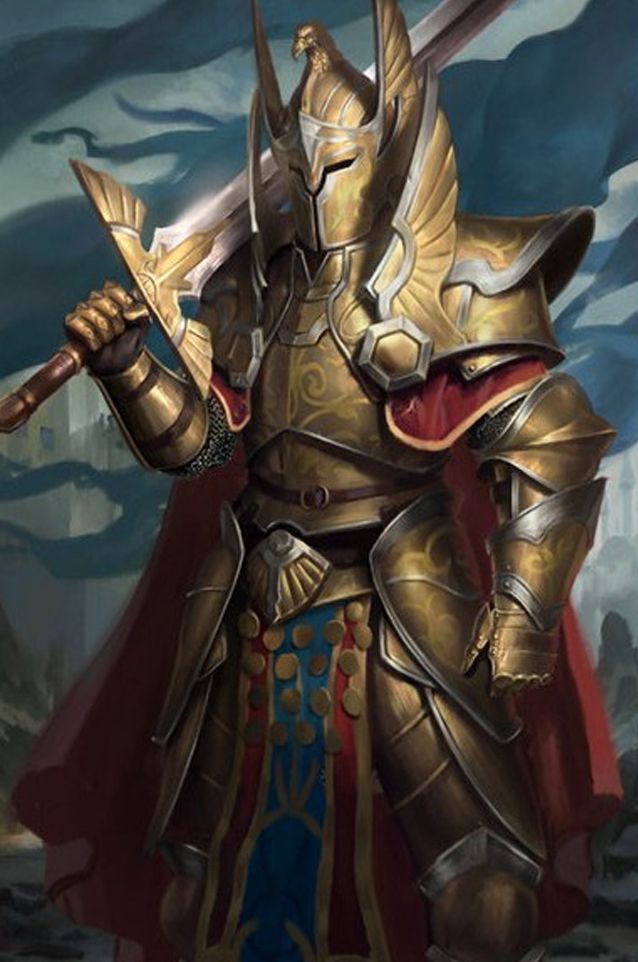
You’re proficient with all weapons and with shields, so you’ll want to have multiple gear sets based on your chosen combat style and the circumstances. Fighting with a longsword and a shield is best to have high AC and make use of the duelist fighting style. If you’ve taken Great Weapon Fighting, Great sword all day. The math is more favorable for great sword than great axe.
A reach weapon is the best option for a paladin, especially if you take the Polearm Master feat as soon as you can.
Magic
Paladin’s magic is focused on buffing and healing. To augment it, you’ll want to look for items that can cast utility spells, such as Detect Magic. Taking the Arcane Initiate spell is recommended, as it grants access to cantrips that your class otherwise lacks.
Multiclassing
Barbarian: Rage damage is the only reason to take a dip into this class, as most of the barbarian’s abilities are contrary to or redundant with the Paladin’s own.
Bard: Bardic Inspiration and Song of Rest would make you a very good support character, but in general you want to stick with more martial classes.
Cleric: Everything the Cleric has is redundant with Paladin.
Druid: Wild Shape on its own is a powerful ability, but it doesn’t combo with any of your Paladin abilities, other than added resilience.
Fighter: A second fighting style, second wind, and action surge are the best reasons to dip into Fighter.
Monk: Monk abilities rely on you being unarmored, which is the opposite of how you should be kitting out your Paladin.
Ranger: Ranger offers a second fighting style, but not much else.
Rogue: A Conquest or Death Paladin would do well to take a level of Rogue to get Sneak Attack.
Sorcerer: As a Charisma-based casting class, Sorcerer grants you more spell slots for your smites, and if you stick with it long enough to get sorcery points, you can consume those to gain even more spell slots, granting you additional smites.
Warlock: Another Charisma-based casting class that affords you the best cantrip in the game, and spell slots that recharge after a short rest, further fueling your smites. If you take three levels of Warlock you will gain two second-level spell slots, and with Pact of the Chain you gain a familiar you can use for flanking bonuses. Hexblade is a perfect subclass for you, giving you access to Hexblade’s Curse so you don’t need to waste the spell slot on Hex, and can instead use it for a smite.
Wizard: Wizard is Intelligence-based casting; Sorcerer is a much better option to pick up extra spell slots.

References
DMG Dungeon Master’s Guide
EGtW Explorer’s Guide to Wildemount
ERLW Eberron: Rising from the Last War
EEPC Elemental Evil Player’s Companion
GGtR Guildmasters’ Guide to Ravnica
MM Monster Manual
MToF Mordenkainen’s Tome of Foes
PHB Players Handbook
SCAG Sword Coast Adventurer’s Guide
TP Tortle Package
VGtM Volo’s Guide to Monsters
XGtE Xanathar’s Guide to Everything





